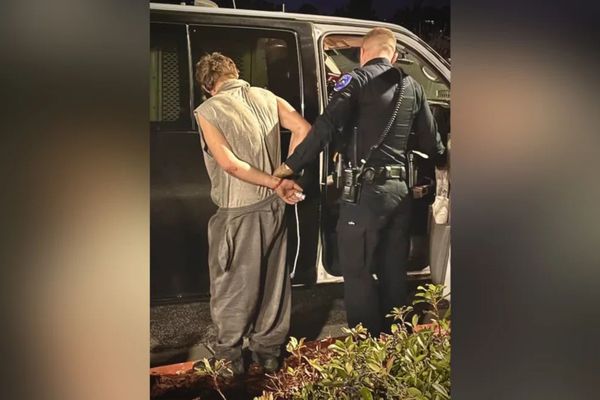
A major earthquake of magnitude 7.9 struck central Turkey and northwest Syria on Monday, killing hundreds of people as buildings collapsed across the snowy region, triggering a search for survivors trapped in rubble.
The quake, which hit in the early darkness of a winter morning, was also felt in Cyprus and Lebanon.

"I have never felt anything like it in the 40 years I've lived," said Erdem, a resident of the Turkish city of Gaziantep, near the quake's epicentre, who declined to give his surname.
"We were shaken at least three times very strongly, like a baby in a crib."
Turkey's disaster agency said 76 people had been killed, and 440 hurt, as authorities scrambled rescue teams and supply aircraft to the affected area, while declaring a "level 4 alarm" that calls for international assistance.

Syrian state media said more than 100 people were killed and dozens injured there, most in the provinces of Hama, Aleppo and Latakia, where numerous buildings had been brought down.
"The situation is very tragic, tens of buildings have collapsed in the city of Salqin," a member of the White Helmets rescue organisation said in a video clip on Twitter, referring to a town about 5 km (3 miles) from the Turkish border.
The rescuer on the clip, which showed a rubble-strewn street, said homes were "totally destroyed".

Many buildings in the region had already suffered damage in fighting during Syria's nearly 12-year-long civil war.
People in Damascus, and in the Lebanese cities of Beirut and Tripoli, ran into the street and took to their cars to get away from their buildings in case they collapsed, witnesses said.
In Turkey's Gaziantep, Erdem also said people had fled from their shaking homes and were too scared to return.

"Everybody is sitting in their cars or trying to drive to open spaces away from buildings," Erdem said by telephone. "I imagine not a single person in Gaziantep is in their homes now."
The United States was "profoundly concerned" about the quake in Turkey and Syria and was monitoring events closely, White House national security adviser Jake Sullivan said on Twitter.
"I have been in touch with Turkish officials to relay that we stand ready to provide any and all needed assistance," he said.

The region straddles seismic fault lines and is prone to earthquakes.
FOCUS ON SEARCH AND RESCUE
The tremor lasted about a minute and shattered windows, according to a Reuters witness in Diyarbakir, 350 km (218 miles)to the east, where a security official said at least 17 buildings collapsed.
Authorities said 16 structures collapsed in Sanliurfa and 34 in Osmaniye.
Broadcasters TRT and Haberturk showed footage of people picking through building wreckage, moving stretchers and seeking survivors in the city of Kahramanmaras, where it was still dark.
"Our primary job is to carry out the search and rescue work and to do that all our teams are on alert," Turkish Interior Minister Suleyman Soylu told reporters.
The German Research Centre for Geosciences (GFZ) said the quake struck at a depth of 10 km (6 miles), while the EMSC monitoring service said it was assessing the risk of a tsunami.
The U.S. Geological Survey (USGS) reported a series of further earthquakes following the initial tremor, which it put at a magnitude of 7.8. There was a quake measuring 6.7 in Gaziantep and another of 5.6 in the city's Nurdag area.
Turkey's Disaster and Emergency Management Authority (AFAD) put the magnitude of the quake at 7.4 near Kahramanmaras and the larger city of Gaziantep, close to the Syrian border.
Tremors were also felt in the Turkish capital of Ankara, 460 km (286 miles) northwest of the epicentre, and in Cyprus, where police reported no damage.
"The earthquake struck in a region that we feared. There is serious widespread damage," Kerem Kinik, the chief of the Turkish Red Crescent relief agency, told Haberturk, issuing an appeal for blood donations.
Turkey is among the most earthquake-prone countries in the world. More than 17,000 people were killed in 1999 when a 7.6-magnitude quake struck Izmit, a city southeast of Istanbul. In 2011, a quake in the eastern city of Van killed more than 500.
(Additional reporting by Akriti Sharma in Bengaluru, Maya Gebeily in Beirut, Kinda Makieh in Damascus, Jonathan Spicer and Daren Butler in Istanbul and Humeyra Pamuk in Washington; Writing by Jonathan Spicer, Robert Birsel; Editing by Tom Hogue and Clarence Fernandez)







